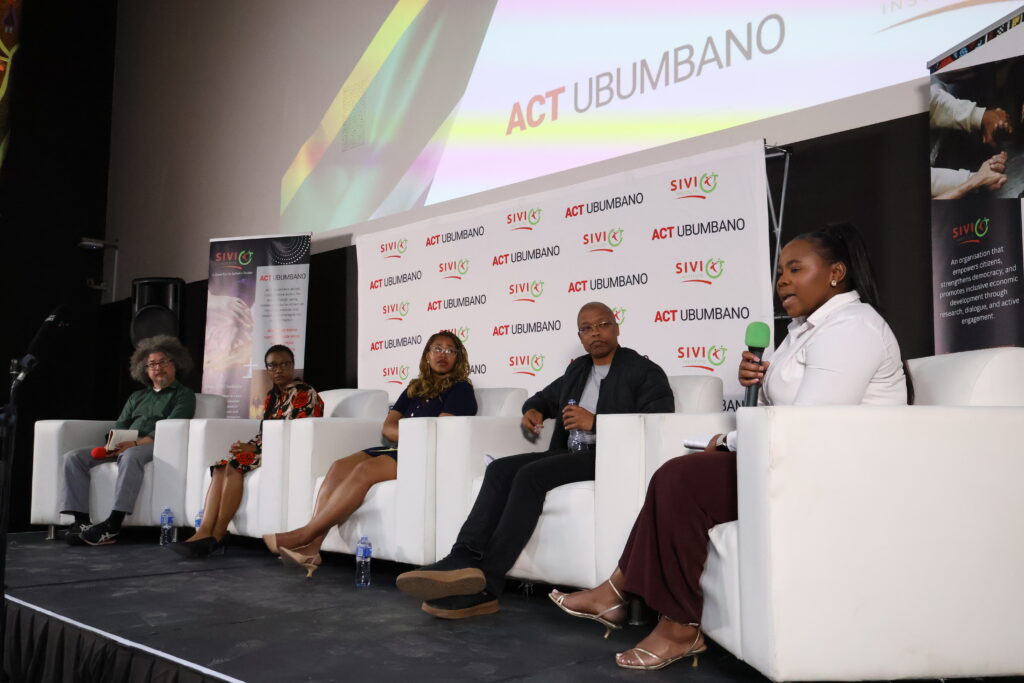Tracking a Year of the GNU: Launch of the South Africa Barometer Report
We launched our report on the performance of South Africa’s Government of National Unity (GNU) on Tuesday, the 16th, at the Origins Centre within the University of the Witwatersrand. The event was hosted in partnership with ACT Ubumbano, a network of Southern African and European organisations working towards economic, gender, and environmental justice.
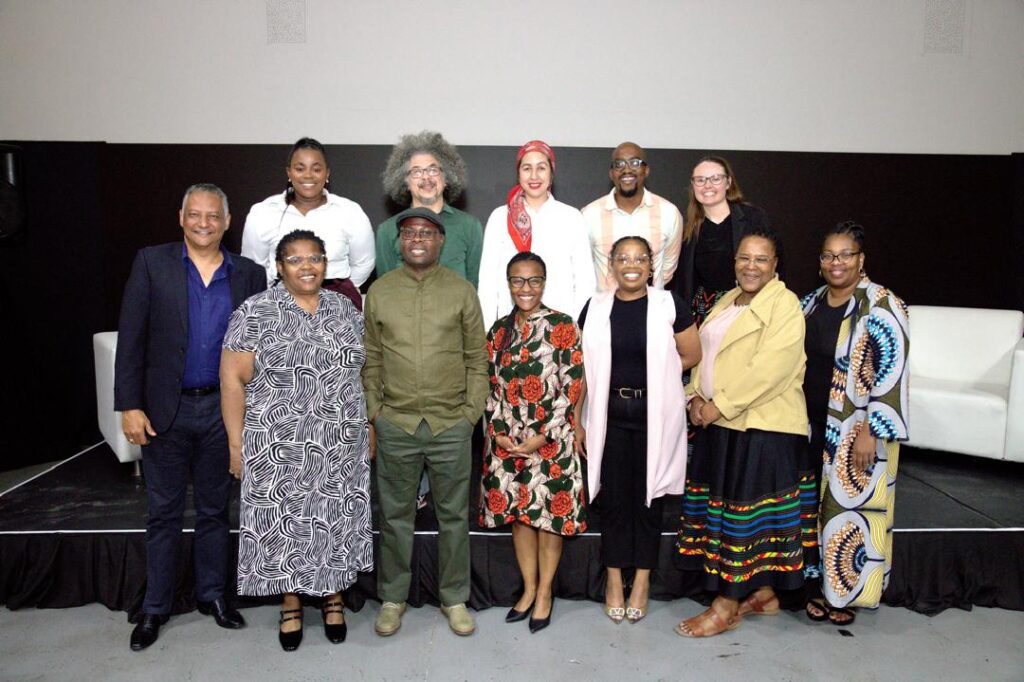
The South Africa Citizens Watch is an initiative of SIVIO Institute, produced under the African Citizens Watch platform. The report, Finding Their Feet: South Africa’s Government of National Unity, takes a close look at how the GNU has performed since its inauguration in July 2024 up until July 2025. It offers a detailed analysis of the extent to which the government is converting promises made into tangible policy actions taken, and the areas where work is still needed.
The launch event brought together academics, civil society leaders, and media representatives. The event was covered in the media extensively by the South African Broadcasting Corporation (SABC, the Mail and Guardian, and Independent Online (IOL). The launch event provided an opportunity for stakeholders to engage with the issues raised in the report and the wider implications. Conversations highlighted the need for new forms of collaboration between state and non-state actors and reaffirmed the value of evidence-based tracking tools in keeping democratic promises alive beyond election cycles.
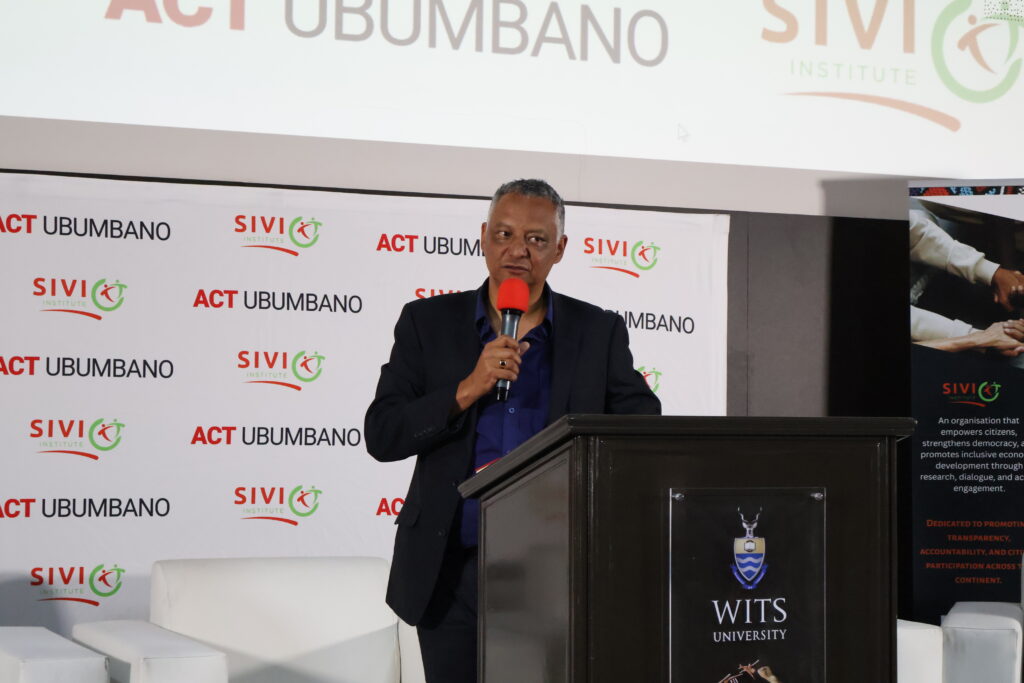
Ashley Thompson-Green, Executive Director of ACT Ubumbano, officiated the launch and set the tone for the conversations that followed. In his opening remarks, he situated the South Africa Barometer within ACT Ubumbano’s broader Accountability Project, emphasising its role as a space where evidence meets action. His reflections grounded the gathering in the significance of the work accomplished so far, while pointing ahead to the responsibility of deepening accountability across South Africa’s public sphere.
The Methodology: Tracking Promises and Actions
Tendai Murisa, of SIVIO Institute, then situated the project within a broader context of an existential threat to democracy and the need to think beyond holding elections. He explained the methodology behind the tracking and the scoring for the Barometer. He highlighted that the framework extracts and categorises promises made in two documents:
- The President’s maiden speech to Parliament on 18 July 2024
- The Medium Term Development Plan (2024–2029)
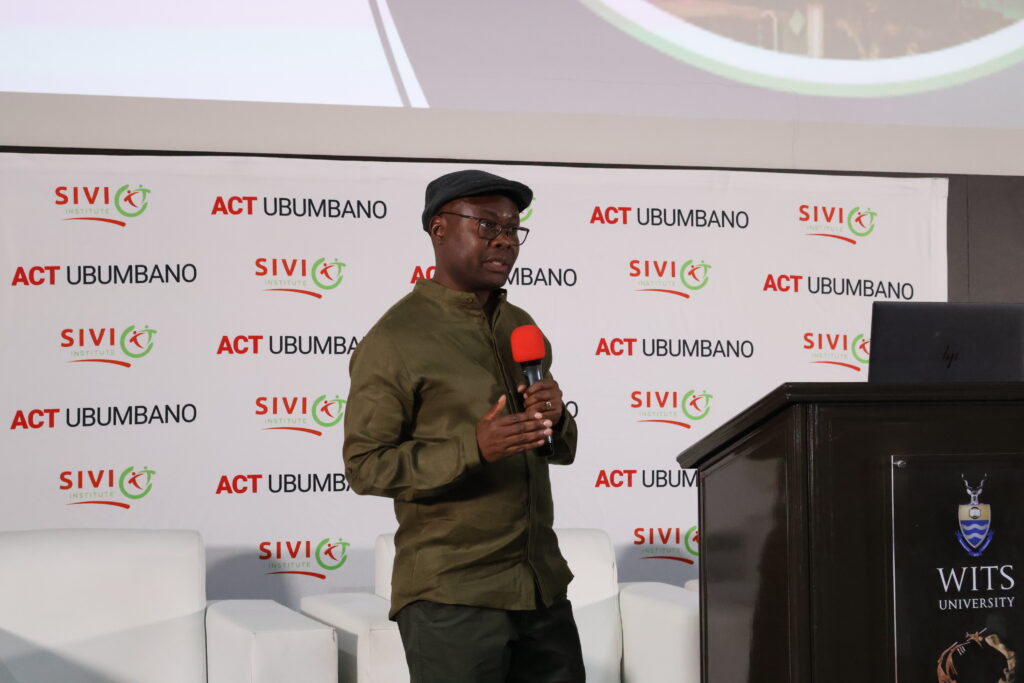
These commitments are grouped across five critical sectors: Economy, Governance, Corruption, Social Services, and Climate Change. Murisa emphasised that actions attributed to the government are drawn exclusively from official publications and verified reports from trusted media outlets, such as the Daily Maverick. Every action is cross-checked across multiple sources to ensure transparency and accuracy.
Key Findings by Sector
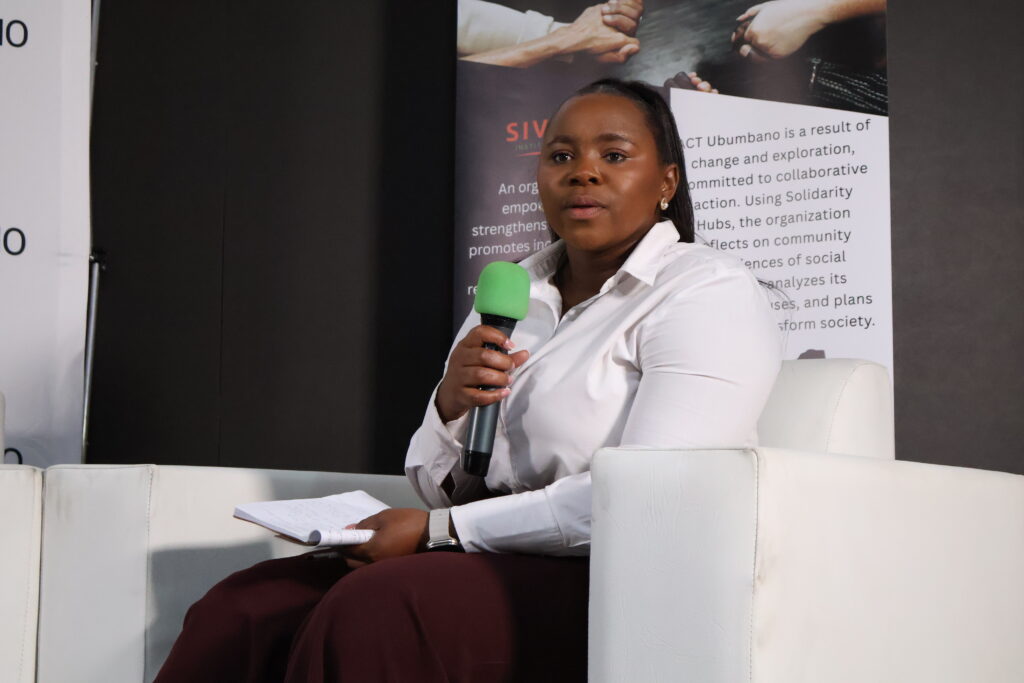
Yolokazi Mfuto, our country researcher for South Africa, led the presentation of the report’s findings. She unpacked the results, guiding us through the different sectors we are monitoring: Economy, Governance, Corruption, Social Services, and Climate Change. Through her presentation, she highlighted important insights and raised issues that call for more reflection and discussion within each of these sectors.
She started by providing an overview of what is being tracked. The GNU made 121 promises. Of these, 26 are in progress, while 94 remain uncommenced. None have yet been broken, modified, or fully implemented.
Economy
There are 44 promises made by the government to improve the economy. The findings reveal that the government is yet to start work on 77% of these promises, and they have only carried out 10 actions, which makes for 12% progress. Notable actions include the allocation of R6 million to the Spaza Shop Fund and the enactment of the Expropriation Law. However, fiscal pressures remain, with delays in budget releases, an increase in Value Added Tax (VAT), and GDP growth slowing to 1.4%. Promises tied to infrastructure rollout and social protection remain critical watch points going forward.
Governance
In the governance sector, progress stands at 4%. Out of 22 promises, the government has only carried out 5 actions. Barriers include persistent challenges such as weak state capacity, political factionalism, and uneven public service delivery. Yet, there is measurable movement in efforts to modernise public entities and reform the criminal justice system. New initiatives like Operation Vulindlela II and the Digital Transformation Roadmap offer some momentum in strengthening state performance.
Corruption
Of the 7 promises on corruption, 57% remain unfulfilled. Current progress stands at 15%, with 3 actions underway. A significant milestone is the freezing of R67 million in misappropriated funds. However, recovery efforts are slowed by legal and bureaucratic hurdles. The government has committed to a set of future reforms, including strengthening anti-corruption institutions, overhauling systems within the criminal justice chain, and implementing an Integrated Organised Crime Plan.
Social Services
The social services sector is made up of 42 promises, with 10 showing partial action and 34 yet to commence. Progress stands at 11%. Yolokazi highlighted key commitments under this cluster, including promises to tackle poverty, expand post-school education opportunities, and drive inclusive economic transformation for women, youth, and persons with disabilities. No promises have been broken yet.
Climate Change
There has been no progress on the six promises to respond and adapt to climate change.
Overview of Government Performance (2024–2025)
As of July 2025, the overall implementation score across sectors stands at 9%. Out of 121 promises made since July 2024:
- 0 fully implemented
- 26 in progress (21%)
- 94 not commenced
- 0 broken
The panel discussions that followed reinforced the central role of citizens in fostering improved accountability on the part of officeholders. They highlighted how evidence-based tools can bridge the distance between political commitments and public expectations. As South Africa moves into the second year of its GNU, the Barometer will remain a vital reference point for measuring delivery and for strengthening the practice of democratic accountability in the years ahead.
